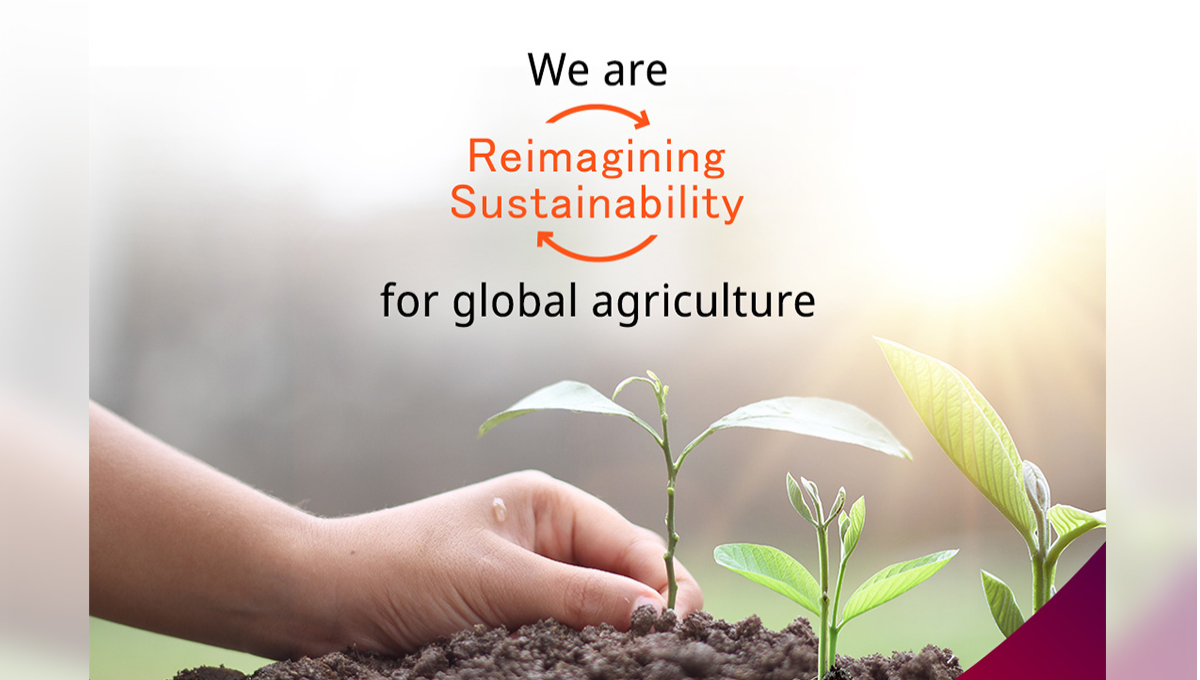On World Environment Day 2022, FIFA President Gianni Infantino announced a ‘Green Card for Football’ – a pledge to make the 2022 World Cup carbon neutral and a call to hear others’ goals, commitments, and plans to ‘preserve the environment and save our world’.
At UPL we share this vision and have made Reimagining Sustainability for global agriculture our mission. By doing this, we can help restore balance to the environment and ensure that food systems and farming not only feed our population, but sustain and safeguard our one world. This shared commitment is at the heart of our partnership with FIFA and our OneGoal campaign to harness the energy and enthusiasm generated by the World Cup to advance global awareness for sustainable agriculture.
For us, Reimagining Sustainability is not just a dream or a corporate social responsibility ambition, it is the driving force behind every product we develop, every project we lead, and every partnership we forge. It is a real opportunity to secure positive real-world impacts for us all. To sharpen these efforts and broaden our impacts on sustainability, we focus on three core pillars: Food sustainability, ensuring global food chain security; Economic and social sustainability, ensuring economic resilience, equal opportunities, and social empowerment for farming communities around the world; and environmental sustainability, helping foster a healthy planet and ensuring agriculture is supporting global decarbonisation efforts.
Let’s start by looking at food sustainability. Ensuring that urban, rural, and underserved communities have access to nutritious and reliable food supplies is one of – if not the most – vital role agriculture plays in society. But as a result of today’s intersecting challenges, food insecurity is on the rise. 2020 saw the number of people going hungry in the world increase to nearly 811 million people with long-standing issues such as climate change, and recent crises such as the COVID-19 pandemic and the Ukraine conflict now worsening this situation.
Amidst this era of uncertainty, now, more than ever, we’re committed to reaching more growers across the world with the uplifting tools, technologies, and training they need to farm more productively and more efficiently without compromising the environment or their soils’ capacity to support future crops. We’re also working relentlessly through our R&D centres and global network of partners to develop innovative technologies and solutions to address the new and existing demands of distributors seeking to bring consumers fresh, healthy, and safe food. By minimising post-harvest wastage, which accounts for 40% of food losses globally, we’re further strengthening links in the global food chain. Together with our stakeholders, we aim to co-create an agile food system that is not only resilient to current and future shocks, but also prosperous and sustainable.
Turning to Economic and Social Sustainability, we’re working to power new levels of economic prosperity and social inclusion. This involves a range of community development and knowledge-sharing programs that deliver mutual benefits for farmers and their wider communities across agriculture development, skills development, and entrepreneurship. For example, in India we’re working with tens of thousands of smallholder and marginal farmers, young people, and women, to close skill gaps, improve access to resources, enhance institutional support and engrain an entrepreneurial culture. Meanwhile, in Africa, we’re also creating greater opportunities for women to participate, contribute to, and improve their quality of life through agriculture. Did you know that women make up over 40% of agricultural labour in developing countries, and yet they produce 20-30% less than male farmers due to accessibility issues? By supporting women to overcome gender inequalities we can provide more nutritious and sustainably produced food to feed our growing global population, contribute to greater economic empowerment, and ensure an inclusive and prosperous future for all.
Finally, but by no means least, we believe that through environmental sustainability, agriculture can do much more than mitigate the effects of climate change, but work to make a positive real-world impact on helping safeguard and sustain our ecology and environment. Indeed, with the sector occupying almost 40% of the global land surface and contributing to around 22% of global greenhouse emissions – agriculture is both uniquely challenged by the impacts of climate change, and vital to reaching net-zero. At UPL, we’re unashamedly optimistic about the possibilities for climate-positive agriculture and are pleased to be breaking new ground in our industry.
We’ve talked before in this blog about our Gigaton Carbon Goal, the ways in which business units such as Natural Plant Protection (NPP) support healthy soils, and programs such as ProNutiva minimise environmental impacts, but our efforts and impacts run deeper. We consistently strive to build a product portfolio that is energy and resource efficient to enable a positive environmental footprint. This goes beyond agricultural inputs, to include new digital tools that bring farms online and give farmers access to efficiency improving data and more. And sustainability is ingrained in every aspect of our business as we optimise our own resource consumption and adopt green energy at our manufacturing operations. For example, in 2020-21, 19% of electrical power at our two largest manufacturing plants came from renewable sources, we achieved 60% zero liquid discharge at our manufacturing plants, and harvested and reused 50,000m3 of rainwater.
This is just the tip of the iceberg. In the next blog we’ll look at how some of our key projects, products, and business units are contributing to each pillar as we build towards the first ever green World Cup. To achieve our One Goal, we are working together with FIFA, farmers, and consumers to reimagine what sustainability means for agriculture, and what agriculture means for sustainability.
